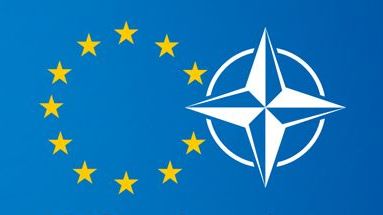
At the NATO Summit in Chicago a first assessment of the Alliance’s Smart Defense initiative is expected. As the European Union is invited, the first results of its Pooling & Sharing Initiative will be discussed as well. On the NATO side in particular there is a search for “flagship projects” substantial enough to present to the Heads of State and Government.
On 1 December 2011, the EU’s Foreign Affairs Council welcomed Member States’ commitments to eleven “specific concrete projects” facilitated by the European Defense Agency (EDA). They are the result of the new dynamic prevalent in the EDA, and from the initiative of specific Member States, among others France and Italy. French industrial interests undoubtedly play a role but the fact of the matter is that these projects directly address some of the key European shortfalls in terms of enablers, most notably air-to-air refuelling; smart munitions; intelligence, surveillance, and reconnaissance including space situational awareness; and military satellite communications.
It is now crucial therefore that follow-up is ensured and a critical mass of Member States recruited to make sure that these key projects will be implemented.
These projects are certainly promising. So promising in fact that the US has proposed to merge certain Pooling & Sharing and Smart Defense initiatives into a common flagship project. There could be no better proof of the EU projects’ potential– nor of the difficulties NATO is facing to arrive at equally promising proposals. For the time being, the projects listed under the heading of Smart Defense are all useful but none is consequential enough to merit the “flagship” label. As the capability problem NATO faces is a European one, it is probably logical that it proved more easy to find (the beginnings of) a solution among Europeans, through the EU’s Common Security and Defense Policy (CSDP). There is no need for Schadenfreude or envy on the part of the respective bureaucracies though. What counts is that the European Member States, at the service of which both the CSDP and NATO are, have agreed on what could be the first step towards a major enhancement of Europe’s capabilities.
Could be. For this to materialize, disturbance must be avoided and follow-up ensured.
The US must avoid disturbing and potentially fatally undermining the still modest European dynamic by focusing too much on its own industrial interests. The US bid to create a common air-to-air refuelling project using American equipment is an example of how this attitude can be counter-productive. Objectively, Washington should welcome a European initiative in an area in which in the Libyan crisis Europeans were almost wholly dependent on US assets.
But its idea of a common American-equipped Pooling & Sharing/Smart Defense project risks dividing the Europeans. Reluctance to invest in collective projects being considerable already, those Europeans with defense industrial interests will certainly not be convinced by the prospect of equipping Europe with American enablers. Those without a significant defense industry might be so enticed but without participation of the former, they lack the critical mass to acquire any significant numbers. Continued fragmentation will be the logical result. If neither project reaches the critical mass to generate a substantial capability increase, burden-sharing will remain an illusion. This is especially prone to create bad blood as it comes in the wake of the US cancelling a major air-to-air refuelling contract with Northrop Grumman/EADS in favor of Boeing, on grounds which are contentious to say the least.
Europe must ensure through quick and concrete follow-up that the momentum is not lost. This requires collective and top-down political decision-making. Only the top political leaders of the Member States have the authority to order their defense establishments to make this happen, by reorienting both investments and cuts in function of the need to participate in collective projects. Perhaps the time has come to lift defense up to the level of the European Council, i.e. the Heads of State and Government, which until now has never taken charge of the CSDP. Under its president, Herman Van Rompuy, the European Council has started the practice of preparing the key summits between the EU and the great powers. Is not the NATO Summit such an occasion? Putting Pooling & Sharing on the agenda of the European Council prior to Chicago would create the best chance of starting a political dynamic that would stimulate sufficient Member States to sign up to one or more of the key projects. Even if not all of the 27 would be able and willing to join in now, it could create the critical mass for each individual project to start for real.
Thus a unique opportunity would be created for Van Rompuy to deliver a strong message in Chicago on behalf of the EU: these are the strategic enablers which through these collective projects EU Member States have decided to acquire.
Prof. Dr. Sven Biscop is director of the Europe in the World Programme at Egmont – Royal Institute for International Relations (Brussels) and is a member of the Atlantic Council’s Strategic Advisors Group.
Image: eu%20nato%206%2021%2010%20pic.jpg
